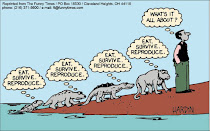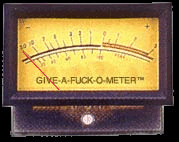[NB: First written in July 2012. I was either in Sienna just recovering from my heart attack, or in Hamburg staying with friends right after that, waiting to be allowed to fly long distance again. This was amongst some (I think) unpublished rambles I found in Evernote while tidying up. . Maybe I used some of it in other posts, but I can't find evidence of that right now (and the swimming pool is beckoning). Some attitudes to life from that time are probably not well placed in a post "#metoo" context. Another one or two old unposteds to come, I hope.]
~~~~~~~~
A man who is good for anything ought not to calculate the chance of living or dying; he ought only to consider whether in doing anything he is doing right or wrong -- acting the part of a good man or of a bad.
Schopenhauer.
~~~~~~~~
I'm not
suddenly getting philosophical. I've alway been struggling to understand how a knowledge of philosophy can influence my actions (preferably for the better). It's more than just remembering which philosopher said what (and not a chance of me remembering anything correctly), but it's also the implementation of their philosophy into my life. Perhaps I mean the moral code (whatever that means - and epistemology is also an issue) they offer, suggest or demand. Perhaps I am referring to
The Meaning Of Life, or perhaps my reasoning leads to that just because there is no god, and no meaning, and one needn't be polite and scrape the mud off one's shoes before entering another's sanctum.
However, in our second by second existence, life moves too fast. Often it is not until after a situation has passed that I realise an opportunity to make a philosophical decision has passed. Sigh. So rather than being proactive, my philosophical thoughts tend therefore to be post hoc, and I end the day contemplating my failures, and kicking myself for such moral recidivism, after the event. I look back at the muddy footprints and hang my head.
Essentially I see myself as a good man who occasionally plays the bad, and then agonises about it in the pub afterwards. Well sometimes I don't agonise, sometimes I tell everyone how brilliant it was, but that's not the real me. Really.
Writing a blog, a public diary, gives you a chance to examine yourself and your life, to lay it all out in public to incomplete strangers (I feel like I know you, all four of you - hey I
do know three of you!), which is what I have been doing in many of my posts, whether you've noticed it or not.
And, now, writing after I've recently had a momentously memorable
memento mori moment and was mere millimeters of coronary artery lumen from being no more, well, that is most likely to push a ruminative soul into thinking fuzzily about the otherwise petty matters of life and death, right and wrong, love and sex, and Woody Allen movies in general.
~~~~~~~
Am I lying when I write in my blog? I do try to be honest
in essence, even when I am making things up, because it's the general mood underlying the exploits of the composite character that is Bruce that I most wish to convey. The tendency to anger, frustration, and recrimination when you are aware that you (or others, usually the others!) are violating codes that you once held as immutable, but now see as arbitrary. These are out there forever at least until the heat death of the universe, or until something better than the Internet comes along, whichever comes first, so it's too late to go back now.
Not that anyone in the future will give a flying rat's arse. There are already way too many
physical books in the universe, let alone all this electronic verbiage. Who would bother? No-one reads the old plays of Voltaire any more, even though these were the basis of his fan base when he was alive (I heard this on podcast - fuck reading them). It cheers me to think this in a way. Because he didn't write Candide until he was 65, and here I am 55 and done fuck all.
~~~~~~~
"The unexamined life is not worth living.”
Socrates
That old chestnut. The Unexamined Life - great name for
a blog! Do you think about what you are about to do, what you end up doing, what you have done? More than just wondering what a certain hero might have done in a certain situation - what would Bryan Boytano, Jesus Christ, Tyler Durden, Atticus Finch, Timothy Leary, or Calvin/Hobbes do - are there any hesitation any more, any second thoughts? I wonder about my friends sometimes: Have they just given up on thinking about these issues. Am I Robinson Crusoe here? Was I right in doing that, was the outcome for the best?
Primum non nocere? Was anyone watching? Is my reputation (hah!) tarnished? If you answer Yes to any of these questions, Press 1.
I don't necessarily approve of certain behaviours that humans get up to given the chance, though I groan at certain excesses, I don't condemn them out of hand and obviously I don't shy from the milder ones either. I just like to think about them. And sigh. And wonder. And take a Xanax if sleep won't come.
Bad is relative. I'm sorry, but it is.
~~~~~~~~~~~
Utilitarianism used to attract me. Simple rules: maximise pleasure and minimise pain, and not just personally but universally. If it doesn't hurt anyone and you are having a ball, why not? Or it does good and you won't injure yourself, (the other way round) why not? I think that utilitarianism is attractive because of my previous employment as a fetal deformity hunter-killer. Hunger Games with an ultrasound probe. For the best it was, Skywalker. The ostensible justification, to minimise suffering and grief, reduce the overall pain and infirmity in the world. The hidden agenda: save precious resources, defend hospital budgets, doctor's time, preclude those expensive surgeries to keep fixing things. (I am only half serious here.) Protect parents from unnecessary grief and diminished freedom or whatever you want to call looking a disabled child, or at least give parents the information to make an slightly less ill-informed decision.
There are so many "push the old man in front of the train to save five young lives" situations in medical ethics. After a while it gets to you. No, that's wrong. After a while it doesn't get to you any more.
[Don't misunderstand though, I am completely pro-choice and my old job - I still justify it this way - was to provide full and accurate information so that, if necessary, a genuine informed choice could be made.]
~~~~~~
So I am still happy with that part of my history, mostly. But in the rest of my life, now that these justifications are no longer required every evening as I look in the mirror? I am no longer convinced that the narrow
moral calculus of Utilitarianism offers the most realistic way to live, despite its persistence into the present time, such with Peter Singer's tit-for-tat stance on
how we should live in a practical, real world.
Kant, not that I understand much of this stuff, whoah, nothing really except this: he proposed a matrix of moral action. One was the Categorical Imperative which - I blur like sotong over this - means something like - whatever should be done when a certain situation arises, must be able to become a universal law: it must be done every time, for everyone, everywhere. (Categorical as in "complete" - I categorically deny those allegations.)
But who or what has the power to define what should be done? God? The Bible? Allah, The Q'uran? Calvin & Hobbes? Kant, being a good Christian, said God.
Are there
any universal imperatives, however? Thou shalt not kill? -- Except in war, except in prison, except in self-defence. Not universal then.
Thou shalt not wear thy shoes in the house. Thou shalt not get a rub and tug. Thou shalt not take a girl (or whatever) home from the 4FoWs or Nana Plaza. Thou shalt not push in the train queue or overcharge for a taxi ride. Thou shalt not have sex with family members, or animals. Thou shalt maintain marital fidelity.
Believe it not, almost all of the dilemmas mentioned are taboo in one culture, but not in others. For example, the Targaryens marry siblings in order to keep the blood-line of The Dragon pure. Hey.
Kant also makes the point that it is the act itself which is under consideration for being a
categorical imperative. The act of pushing of the old man in front of the train, not the resulting saving of other lives. (That would by the
hypothetical imperative, I believe.) So killing, while always wrong, is not always wrong.
While I at once preferred Nietzsche's modification of Kant's CI - you should only do what you would do if you had to do it again, that is, if you had to live your life over again to bring you to the exact same point of decision making. Would you do it over and over again in a Groundhog Day scenario? We know what Phil Conner did. He kept modifying his behaviour until he got it right, and eventually managed to shag Rita. If that is what you consider a successful or ethical life, then there you go. (I'm no longer sure this works for me: Andy MacDowell has aged a lot since then. Those teeth, too?)
And if I was a superman, beyond good and evil, and god was dead, then I could easily and consistently commit an act that those who share my cultural capital (all the benefits that my upbringing in my society and culture has given me) would consider to be wrong, because my will dictates it. I want to do it, and I can do it because I am better man than you. Seig Heil! So maybe not taking it that far.
There are then relativities to Kantian categories - they are not universal, or imperative after all. The utilitarian equation is not straight forward arithmetic. The numbers are weighted. What if, instead of pushing an old man in front of a train to save five young people, you have to push a your girlfriend in front of the engine in order to save five Nazis?
I am not satisfied with Nietzsche or any of the rationalists now, because even when I can see in advance the decision points that are going to arise and I know what I
should do according to my reasoning, what I would want to do if it came to this again and again, but I can't stop myself from transgressing.
I am merely the mahout of reason on a untrained elephant of will (desire, urge, emotion).
My elephant is bigger and stronger than me. Rationalizing is what most of the time we consider reasoning: Yeh, that's where I wanted to go anyway, because... *
see utilitarianism, above. That rider/elephant metaphor is an old one, but recently reinvented in some books I just read; Jonathan Haidt's The Righteous Mind: Why Good People Are Divided by Politics and Religion, and The Happiness Myth. Which is partly where this discussion originates, that and Michael Sandel's Justice: What's The Right Thing To Do. Light reading.
~~~~~~~~~
Why do I (or Bruce) go Orchard Towers or to Soi Cowboy, or to Kings Cross for that matter, when I know I'll feel bad after going there, for a dozen reasons previously described elsewhere in this blog? Why do I throw my conscience out the window when physical gratification is on offer for a price? The answer is, I try not to any more. And I don't mean any less either - OK, yes I do, I mean less. Not everyone is (i.e. me), wants to be (i.e. me), or can be (i.e. me again) in a sexually satisfying relationship. OK, not everyone cheats in one of those unsatisfying relationship but, in unrelated news, not everyone is happy with their lives (and the utilitarians would say get the fuck out of there - or get out of there and fuck). And when the social pressure is somewhat relaxed thanks to certain cultural differences (real or imagined) in certain parts of the world where concepts such as marital fidelity are not so important, or perhaps more correctly, where infidelity not so disastrously unexpected - every HK Chinese wife expects her man to have his
little wife in Shenzen, and her job is to look after the kids, not give BJs all the time - and peer pressure (elephants follow each other) is high, the sprit is willing but the flesh is tumescent.
~~~~~~~~
So I am talking about looking at what you do and what you have done, analysing and judging it: is this the way you want to have spent your life? Is this the way you want to be remembered? When you look back, are you proud of everything? Could you survive a parliamentary enquiry?
Is this how I anticipated living when I was back in Australia? Aren't there better things for me to do with the limited time I have? And this limitedness is feeling particularly real - as I was so unpleasantly reminded a few weeks ago at the top of the San Gimignano tower in Tuscany when that elephant seemed to be standing on my chest.
Short answer: I have no idea. I balance pleasure with slightly less pleasure, I balance the exploitation of women with the exploitation inherent in my needing to pay for sexual release (not that the money I pay all goes to the person I just screwed) due to urges I have no control over. I balance my guilt at this with the knowledge that my abstinence is not going to change anything; I balance rampant gadget greed with charity; I balance visiting prostitutes with masturbation. Elsewhere in life I balance little white lies with truth; I balance my privacy and my frequent isolation (work travel or angina attacks in Italy) with friendships and Facebook; I balance my atheism with the belief that people are usually good whether they follow a religion or not; I balance the awareness that I am not perfect with the frequent confirmations I see that there a hell of a lot of people out there doing a hell of a lot worse or more outrageous things than I would ever consider.
~~~~~~~
"It’s only human nature!”
"Nature, Mr Allnut, is what we were put on this earth to rise above!”
~~~~~~~
I thrash it out, but I do not despair that the answers don't come as easily as the questions. I relax. I shrug. I do what I can. I try makes others smile. I try to enjoy myself. I try to explain it to
E@L





 This work by Expat@Large is licensed under a Creative Commons Attribution-Non-Commercial-No Derivative Works 3.0 Unported License.
This work by Expat@Large is licensed under a Creative Commons Attribution-Non-Commercial-No Derivative Works 3.0 Unported License.
No comments:
Post a Comment